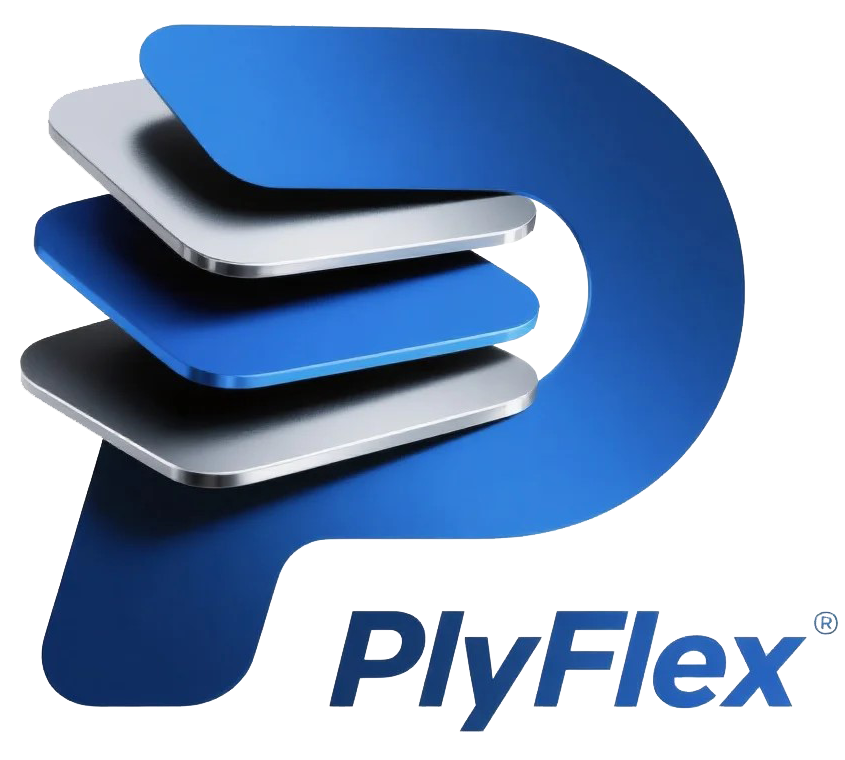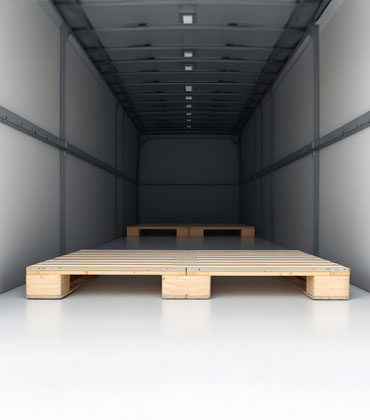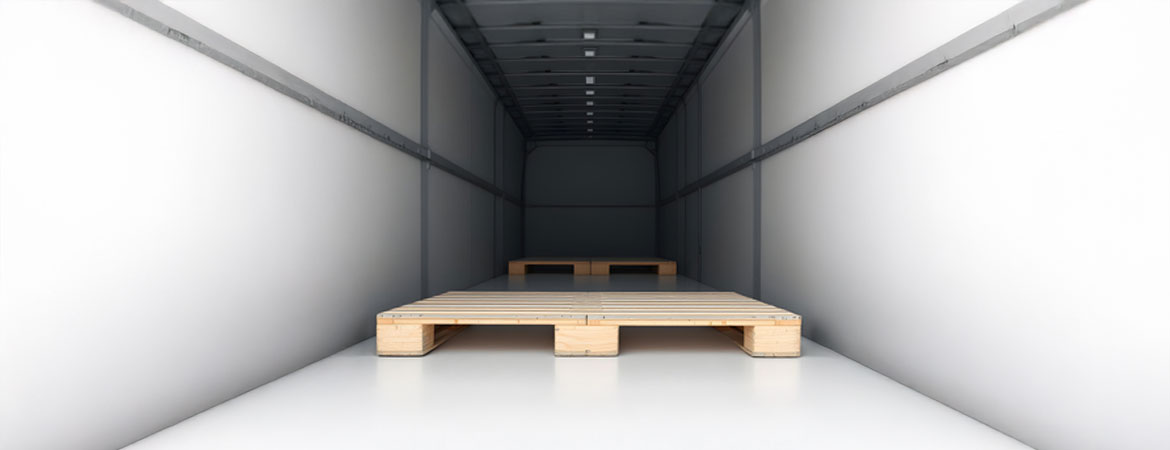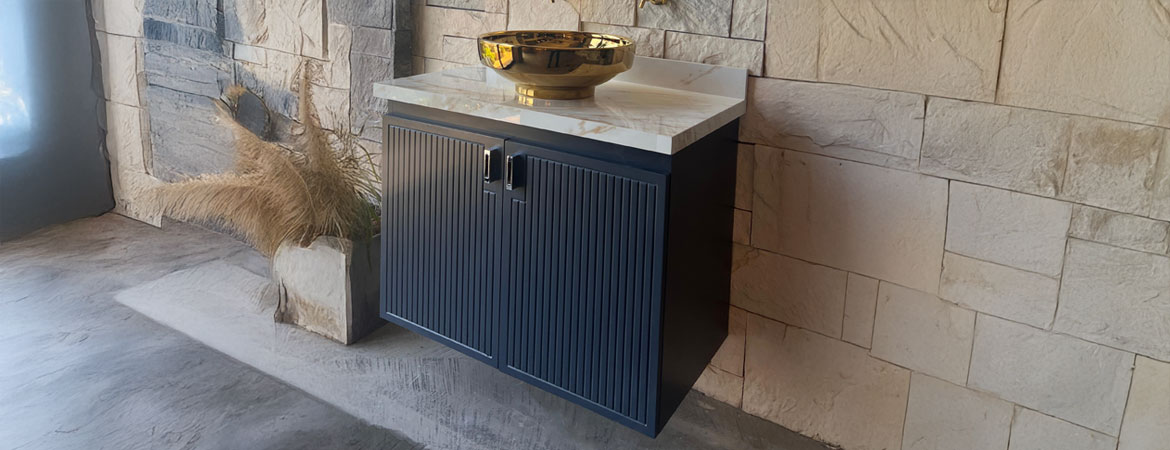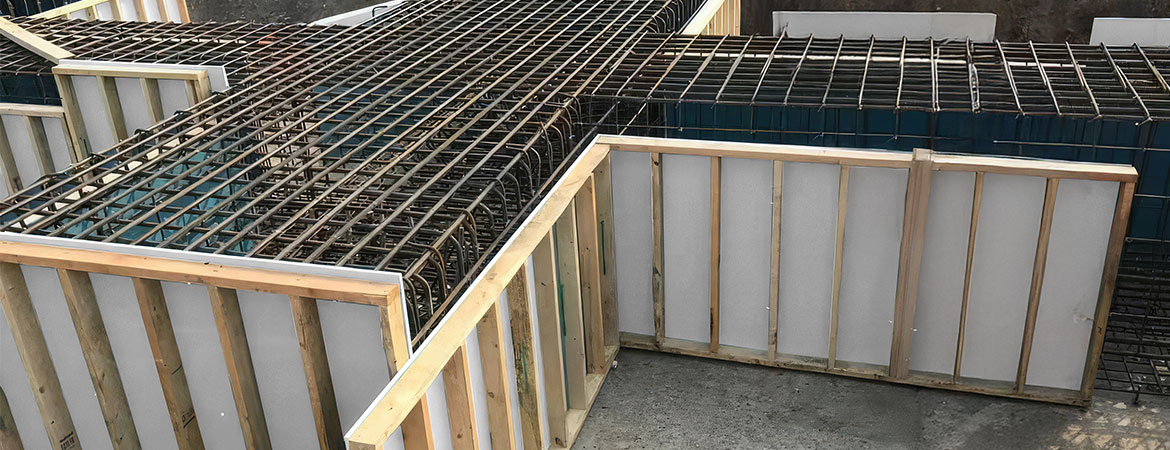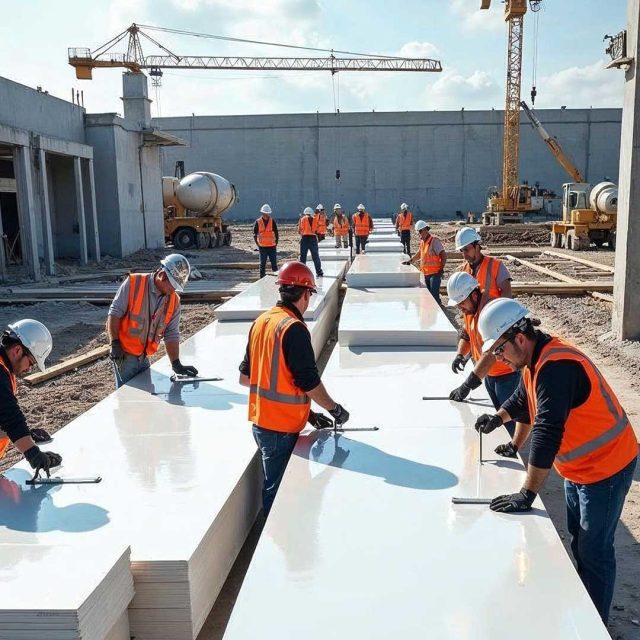Nutzfahrzeuge
Verbundsperrholz liefert hervorragende Ergebnisse bei der Verwendung für Böden und Seitenwände von Nutzfahrzeugen. Seine hohe Festigkeit und Schlagzähigkeit sorgen für sichere und langlebige Böden für Schwerlastfahrzeuge. Gleichzeitig erhöht sein geringes Gewicht die Kraftstoffeffizienz und optimiert die Ladekapazität von Fahrzeugen. Verbundsperrholz ist feuchtigkeits- und chemikalienbeständig und behält seine Leistungsfähigkeit auch bei langfristigem Einsatz.
Hohe Festigkeit und Schlagzähigkeit
Eines der markantesten Merkmale von Verbundsperrholz ist seine hohe Festigkeit und Schlagzähigkeit. Da Nutzfahrzeuge oft schwere Lasten tragen müssen, ist es wichtig, dass die Böden und Seitenwände diese Lasten sicher tragen können. Verbundsperrholz erfüllt diese Anforderung, indem es den Aufprall schwerer Lasten absorbiert und eine Verformung des Bodens oder der Wände verhindert. Dies ist besonders wichtig für große und schwere Fahrzeuge wie Lkw und Lastkraftwagen.
Leichtgewicht und Kraftstoffeffizienz
Das geringe Gewicht von Verbundsperrholz ist ein wesentlicher Vorteil für Nutzfahrzeuge. Durch die Verringerung des Gesamtgewichts der Fahrzeuge wird der Kraftstoffverbrauch optimiert und damit die Betriebskosten gesenkt. Durch die Verwendung leichter Materialien wird auch die Tragfähigkeit der Fahrzeuge erhöht, so dass sie mehr Ladung befördern können. Dies ist insbesondere für Unternehmen im Logistik- und Transportsektor von großem Vorteil, da es einen Wettbewerbsvorteil darstellt, da es die Transportkosten senkt.
Beständigkeit gegen Feuchtigkeit und Chemikalien
Nutzfahrzeuge können verschiedenen Witterungsbedingungen und Umwelteinflüssen ausgesetzt sein. Daher müssen die verwendeten Materialien resistent gegen Feuchtigkeit und Chemikalien sein. Verbundsperrholz weist eine hohe Wasser- und Feuchtigkeitsbeständigkeit auf, so dass das Material seine Leistungsfähigkeit über lange Zeiträume hinweg beibehält. Seine Chemikalienbeständigkeit ist ein großer Vorteil, insbesondere bei Fahrzeugen, die Chemikalien transportieren oder ihnen ausgesetzt sind. Diese Eigenschaften machen Verbundsperrholz zu einer sicheren Wahl für Böden und Seitenwände von Nutzfahrzeugen.
Langlebige Leistung
Verbundsperrholz bietet eine lang anhaltende Leistung und reduziert die Wartungs- und Reparaturkosten für Nutzfahrzeuge. Dank seiner hohen Festigkeit und Haltbarkeit kann das Material über lange Zeiträume ohne Verformung oder Beschädigung verwendet werden. Dadurch können Fahrzeugbesitzer und Unternehmen ihre Fahrzeuge länger effektiv nutzen. Darüber hinaus bietet die Wiederverwendbarkeit von Verbundsperrholz einen erheblichen Vorteil im Hinblick auf die Nachhaltigkeit.
Einfache Installation und Wartung
Die leichte und flexible Struktur von Verbundsperrholz erleichtert die Installation. Es lässt sich leicht auf dem Boden und an den Seiten von Fahrzeugen anbringen und kann bei Bedarf schnell entfernt und ersetzt werden. Dadurch werden Wartungs- und Reparaturarbeiten beschleunigt und die Arbeitskosten gesenkt. Darüber hinaus erleichtert die glatte und widerstandsfähige Oberfläche die Reinigung und Wartung. Schmutz, Staub und chemische Rückstände lassen sich leicht von der Oberfläche des Verbundsperrholzes entfernen.
Umweltfreundliches und nachhaltiges Material
Die Verwendung umweltfreundlicher und nachhaltiger Materialien ist heute für viele Branchen zu einer Priorität geworden. Verbundsperrholz erfüllt diese Anforderung mit seinen umweltfreundlichen Produktionsverfahren und recycelbaren Eigenschaften. Die bei der Herstellung verwendeten Materialien und Methoden sind so konzipiert, dass sie die Umwelt so wenig wie möglich belasten. Die Wiederverwertbarkeit von Verbundsperrholz reduziert die Abfallmenge und unterstützt die ökologische Nachhaltigkeit. Dies trägt zu einem umweltbewussten Ansatz bei der Herstellung und Nutzung von Nutzfahrzeugen bei.
Verbundsperrholz zeichnet sich durch seine Vorteile wie hohe Festigkeit, Schlagzähigkeit, Leichtigkeit und Haltbarkeit aus, wenn es für den Boden und die Seitenwände von Nutzfahrzeugen verwendet wird. Es senkt die Betriebskosten durch höhere Kraftstoffeffizienz und optimiert die Ladekapazität. Seine Widerstandsfähigkeit gegen Feuchtigkeit und Chemikalien senkt die Wartungs- und Reparaturkosten, da es eine lange Lebensdauer hat. Verbundsperrholz ist einfach zu installieren und zu warten und gilt zudem als umweltfreundliches und nachhaltiges Material. Mit all diesen Eigenschaften hat sich das Verbundsperrholz seinen Platz als unverzichtbares Material bei der Herstellung und Nutzung von Nutzfahrzeugen erobert.
